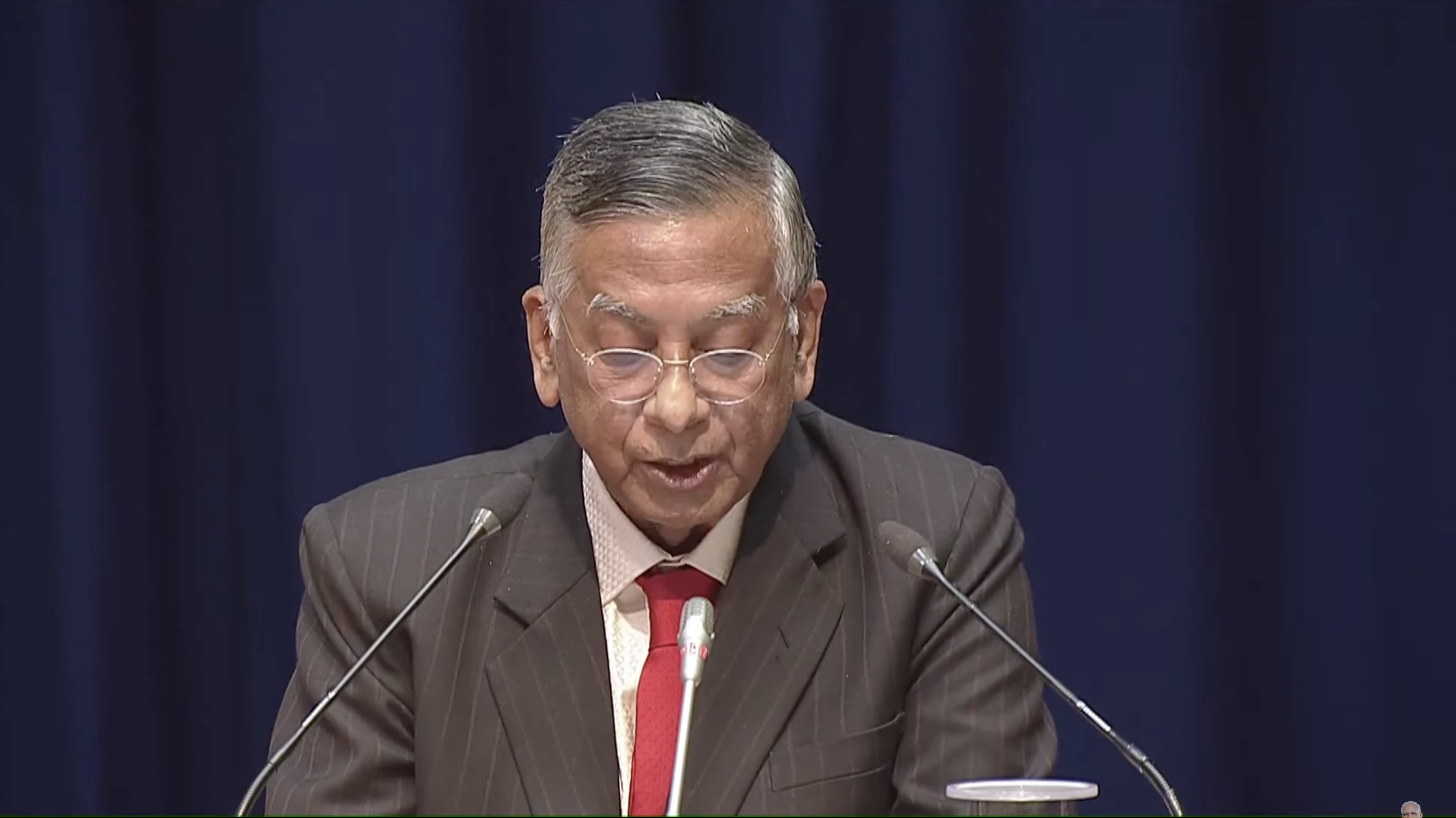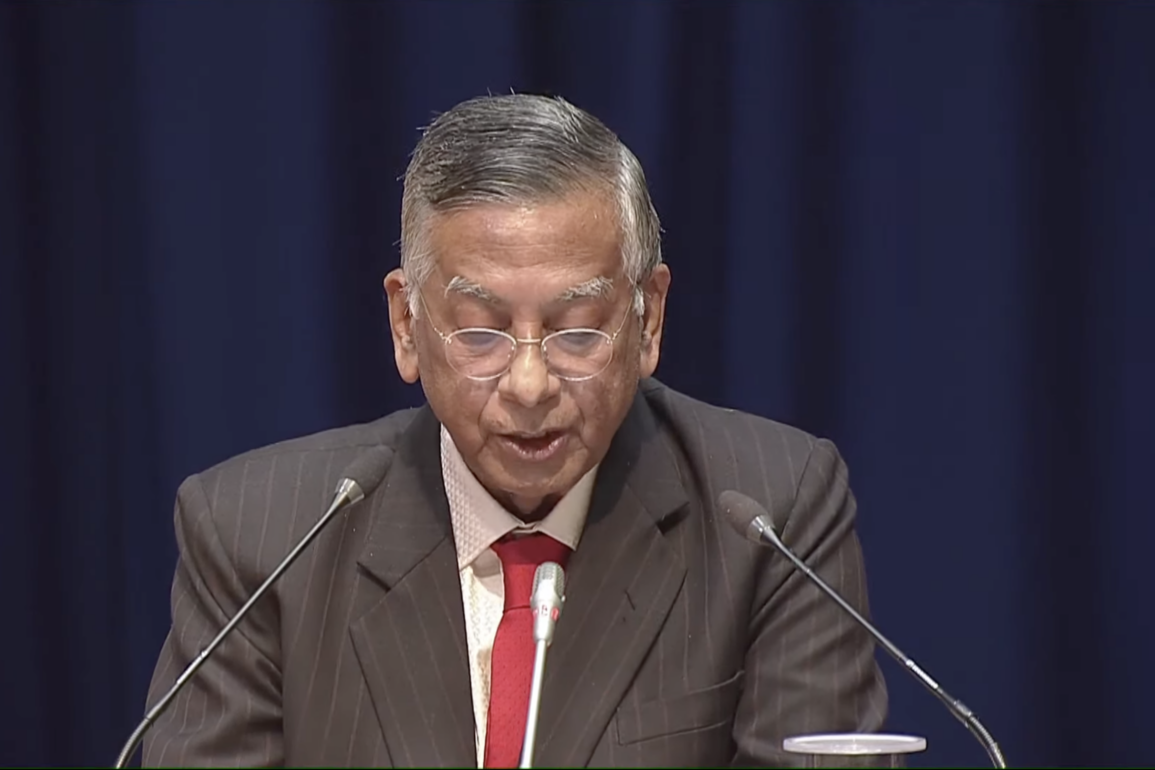
On the Constitution Day, the Attorney General for India R Venkatramani appealed for governments to prioritize their focus on mediation, stating that the legal profession could not be a litigation focused institution as the resolution of disputes and differences through an adversarial system, affected the access to justice of the poor, marginalised, and the economically weaker sections. He also spoke of a need of a National Mediation Watch and stated that he had suggested the Government to establish a National Institute of Criminal Justice Administration.
The AG began his address by expressing the collective responsibility of the nation, its governance institutions, courts, and the legal fraternity to assess their performances and chart fresh programs in the constitutional journey. The Constitution Day, he asserted, served as a national manifesto day for all. He acknowledged India’s adeptness at meeting constitutional demands amid contested legislative experiments, attributing the Constitution’s success to stalwarts like Dr Ambedkar. He urged a pledge to continually evaluate the Constitution’s quality and foster public faith in its vitality. He said–
“Every year we assemble in solemn affirmation of a renewal of our common commitment to the Constitution. This is a collective exercise. The solemnity will continue to inform the exercise as long as our national task remains incomplete and dharma and equality remains unfulfilled. The nation and its governance institutions, the courts, the legal fraternity gather to take stock of performances and to write fresh programmes in our constitutional journey. The Constitution Day is a national manifesto day for all.”
Addressing the domain of legal education, AG Venkatramani brought attention to persistent issues of inequality and the consequences of ill-equipped institutions. He stressed the need for ceaseless attention to these problems and advocated for more debates on the rule of law, portraying it as a non-violent revolution.
He said–
“The legal education with problems of inequality and outcomes of ill-equipped institutions demand a ceaseless attention. The need to meet the aspirations of students from private colleges without compromising on the ethics and quality is a task which has been postponed. Even if we do not directly engage in these matters, these matters are of concern for us. This calls for more and more debates on the rule of law. The Rule of Law is a non-violent revolution.“
He then stated that the bar had slipped in meeting its social obligations, mandates and had morphed into a mere litigation engine. Expressing concern about the same, the Attorney General emphasized the importance of invoking Public Interest Litigation judiciously to preserve its constitutional value. He called for a reinvigorated focus on social responsibilities beyond litigation.
“The profession cannot be litigation focused institution. The constitution promised benefits of access to justice to all cannot be just a litigation access. Resolution of disputes and differences cannot continue through the adversarial system. It is the poor, the marginalised, and the economically weaker sections that suffer from an adversarial system, more particularly in administration of criminal justice. The need for a national platform of legal reforms at the level of bar is urgent. We can act as catalytic agents, even outside the Law commission process,” he said.
Regarding the same, the AG stated that the data collection analysis work was on and a policy framework could come out very soon. He added that with the enactment of mediation law, we must take a jump into mediation philosophy as a major guiding force towards dispute avoidance and resolution. Appealing on behalf of the Indian bar, he urged all governments to prioritise their focus on mediation as the “only lasting and economically wise system of settling issues and differences“.
He added–
“I am on a job to activate a National Mediation Watch with the participation of all Advocate-Generals. These efforts can bear early fruits with the participation of the members of the bar.“
Turning to access to justice, Venkatramani urged members of the bar to transition from distant spectators to active participants, emphasizing the need to move beyond litigation-centric approaches. He said–
“The criminal justice system invites our instant and urgent engagements. The sheer weight of load of work in courts is eating into the vitals of efficiency and empathy. I think there is a need for an institutional framework at the national level to be the watchperson of every day workings of criminal courts. I have suggested the government to introduce a National Institute of Criminal Justice Administration. The central government has rightly supported the establishment of National University of Forensic Sciences at Gandhinagar. I am hopeful that an idea for an institute of criminal justice will received due attention.”
In a forward-looking perspective, the Attorney General advocated for an extensive exploration of the digital world in justice administration, emphasizing the correlation between government investment in justice and the national peace index. Venkatramani envisioned the establishment of digital gram and local nyayalayas as transformative steps in this direction.
Concluding his address, he said–
“Greater the government invests in justice, greater the national peace index.”
This post was originally published on this site be sure to check out more of their content.







